An Interview with Peter Clarke
Published: 24/05/20
Key points of Discussion are:
• His composing days on the c64
• His time at Ocean Software
• His working relationship with Martin Galway
• His current work within the remix64 scene
• His own musicial works
1) Hi Peter. Firstly, thank you for taking the time to do this interview, it’s very much appreciated. My First question is: What was your Introduction to the Commodore 64?
It would have been around 1982 and I bought it first & foremost as a games machine. I also knew you could program these new-fangled things. So, there was a bit of interest in doing that as well. To answer the question that would logically follow this answer… No! I had no idea about the SID chip or it’s capabilities and no ambitions to write music on it.
2) What’s your musical history and what are your influences?
I grew up listening to a really wide range of music. I loved pop music from the age of about 5 or 6. At 11 years plus, I used to do my homework to Beethoven, Tchaikovsky & Mozart but also listened to David Bowie, T-Rex & Status Quo. I got into more ‘rocky’ stuff with Deep Purple, Led Zeppelin and by the time I hit 18, I was loving The Eagles, The Doobie Brothers, Albert Lee & a raft of country-rock music. I learned to play at 20, (quite a bit later than the average musician) and guitar was the first instrument I learned. Although, I taught myself to play Bass and that was the 1st instrument I actually played in a band. I learned to sing harmonies and somewhere along the way I picked up an unwanted, upright piano from a club that we played. Four of us, man-handled this humungous thing up an outside set of stairs and through a 90 degree angle, into the flat I had at the time. With the piano installed, I taught myself to play keyboards. I started playing in bands in 1978. When my own band wasn’t playing, I would go and play bass for other solo-guitar-vocalists that I knew or ‘step in’ to cover with other local bands if needed and I’ve never really stopped playing since.
3) What got you interested in composing for the SID chip?
It was the very, very early C64 games. I thought the music was really poor on a lot of those early titles. Sometimes it was a badly transcribed rendition of a classical or traditional piece of music or a series of beeps and squeaks that added nothing to the experience. At that point, (around late ’83) I started buying music software. I bought lots of titles and the advertising on the box got me every time. I accumulated a collection of very basic music programs which all promised to unlock the synthesizer in your C64
. None did!
4) Can you tell us about your first commissioned work for the c64 and how that came to be?
During my quest to find the ‘Holy Grail’, (the one piece of music software that I could use to write music on my C64), I had a favourite shop in Wigan town centre. I was an avid gamer too and this was before we had ‘Zzap 64’ to give us the ‘low-down’ on the latest gaming titles. The guys who worked in this shop, (Blue Chip Computers) were gamers too, and knowledgeable on the latest stuff. So, one particular Saturday, I get talking to a member of staff; a young guy who says he’s starting to write games for the C64. I tell him I’m keen to write music for C64 games. He says that he’s heard good things about a program called ‘Electrosound 64’. He was, (and still is) Paul Hughes and we became friends. Electrosound turns out to be the ‘Holy Grail’. It looks just like a Roland TR 606 drum-machine but with notes instead of drumbeats. It uses 16 note lengths per pattern and you can apply pitch-bends and basic effects to the sounds.
Fast forward about 6 months and Paul has ported a game called ‘Repton 3’ from BBC Micro to C64, for superior software and he needs music. I wrote the in-game tune at home and turned up at Paul’s house triumphantly clutching my Electrosound, source disks, only to be told it needed a title-screen tune too. So, I wrote that in around 3 hours flat at Paul’s house. My 1st two Pieces of music actually in a C64 game. Neither of the pieces were SID-busting masterpieces but they suited the overall atmosphere of the game.
5) You joined Ocean Software - one of the most noted games publishers out there at the time. How did that come to be?
As a couple of young guys with absolutely no clue about working in the computer games industry, Paul Hughes and I used to talk and laugh about how brilliant it would be to work for one of the big software companies, like ‘Ocean’. So, a little while after ‘Repton 3’, Paul does some work on ‘Scooby Doo’ for Elite and also agrees to provide the title-music for it. I produce a straight forward rendition of the ‘Scooby Doo’ theme and Paul submits the work to Elite. They insist that the agreement was for us to also provide all sound FX for the game and promptly refused to pay, (and they still owe us the measly £200 they offered). Off the back of ‘Scooby Doo’ though, Paul gets hired by Ocean in Manchester. He knows another programmer, (also from Wigan) called Steve Ruddy who’s working for Richard Kay at a fairly new company called Software Creations, just down the road from Ocean. Being fairly new & small, they didn’t have a resident SID musician, like Ocean. So, Paul introduced me to Software Creations. After ‘Scooby Doo’, Paul created a demo-disk featuring a few of my tunes and some clever programming by him which we both carried around. Richard Kay gives me a brief on a game called ‘Mission of Mercy’ and I tell him I already have just the right piece of title music and play him one of my tunes from the demo-disk. We agree terms for the entire project and I scuttle off to compose the remaining music & FX.
Quite quickly after Paul gets the job with Ocean, he’s working on a game called ‘Double Take’. It doesn’t have any music and Martin Galway is snowed-under with existing work. So, Paul whips out the demo-disk and plays one of my tunes from it. Ocean love it and agree to use it in ‘Double Take’. Paul tells me and I’m chuffed to bits. The Master Plan was always for both of us to get into Ocean and now it looked a big step closer. I knew that I’d have to do some damage control with Richard at Software Creations and produce another title-piece for ‘Mission of Mercy’.
Two weeks later, ‘Double Take’ is released and I see it playing on multiple 14-inch TV’s in the games department of a store but the credit reads ‘Music by Paul Hughes’. Now, I’m gutted, heartbroken, angry and stunned. I ‘stewed’ for a couple of days, considering how I should respond. I made my mind up to go to Manchester and confront ‘Ocean’. If Paul had betrayed me, it would create a situation where he had to answer to Ocean for putting them in a compromising situation. If that wasn’t the case then the truth could be revealed. So, in what seemed like an instant, I’m stood in the office of Colin Stokes, (Head of Operations, Ocean Software). I had my source disks in my hand and I’m ‘beasting’ the guy for using my music, without my permission or even a credit. I explained that the music was already promised to Software Creations for ‘Mission of Mercy’ and I had lost those earnings. He initially tried to ‘tough it out’ but he realised I wasn’t going to back down. So…. He offered me a job, in-house at Ocean.. Oh! And he offered to pay me for the lost earnings. This wasn’t the way that either Paul or I envisaged me getting into Ocean; and Paul got into serious ‘hot-water’ at the time but we’ll re-visit this subject and tell a little more of the story later.
6) What was your first day on the job at Ocean like? What was it like to meet the legendary Martin Galway? Did you even realise how was he was regarded by fans of the c64? or was he just another bloke to you?
I played ‘Ocean’ games prior to working there and read magazine reviews so, yes! Of course I knew of Martin Galway and also that he was very highly regarded amongst the C64 fan-base. I don’t remember ‘Day 1’ that much apart from meeting Martin and politely telling him, I was a fan, (even though I wasn’t really, but it seemed the right thing to say at the time). That day was my first glimpse of the ‘Ocean Development System’ and Martin Galway’s music driver. I kind of knew what to expect because Paul had talked about the system he worked on but seeing it there, for the 1st time, it just looked like hieroglyphics on the screen. It was a 6502 assembly language environment in a Commodore 128 computer. This, in turn was linked to a C64 with a sync/transfer cable. Essentially, you did all of your assembly language programming on the C128 and at assembly-time, the resulting machine code was transferred down the cable, to the attached C64. If the code that you had written then crashed; no problem! Your precious source code was safe in the C128. That 1st day / week was a bit overwhelming. The size of the learning curve that I was facing dawned on me. It was a mountain and I realised that I had to climb fast.
7) Martin Galway, before your entrance virtually did everything sound-wise. Do you feel your arrival may have unsettled Martin or was it a boost to the team and relieved the pressure of him?
Once I had been at Ocean a short while, I got to hear some of the stuff that wasn’t made public. Martin Galway had wanted to leave for some time and it was common knowledge to most people at Ocean including the management team. So, in offering me a job, Colin Stokes did 2 things. He hired a ready replacement for Martin Galway’s departure and he also created a situation where he would see if Martin really wanted to go. If he was serious about leaving, Martin simply needed to train me on the music driver and then leave. I saw the politics in action and I think it annoyed Martin that they would just hire this random ‘guy’ from the street to replace ‘Martin Galway’. He was a couple spaces short of being hostile towards me but he was openly critical of my music and very reluctant to teach me anything about the music driver. It was almost as if he were a magician being forced to reveal his tricks. I really wanted to establish a good relationship with Martin but he was fairly cold and unwelcoming. My brief going into Ocean was to get ‘up to speed’ on the ODS as fast as possible and then take up the overflow on Martin’s projects. It took just a little under 2 months to become proficient with little or no guidance from Martin.
Paul Hughes & I hadn’t resolved our differences over ‘Double Take’ properly at this point so, I couldn’t really ask him for guidance on the more general rules of the ODS. Colin Stokes had agreed to pay me for the loss of earnings with Software Creations. What I didn’t find out, until much later was that he deducted that money from Paul’s wages. So, Paul was understandably angry at me too. It turns out that Ocean knew exactly whose music it was. My name was scrolling across the screen while they listened to the music on Paul’s demo-disk. The game was released fast and somewhere in the speed and confusion, Paul’s name was added as the music credit. Both he & Colin Porch raised the issue when they saw it on the released game but Ocean ignored it. I guess they felt it wasn’t that big of a problem and a lot of hassle to change the game, after release.
A couple of months later, my 1st in-house, music project was released. ‘Head over Heels’ got a Gold-Star award in Zzap-64 and I felt as though I’d finally joined Ocean. With regard to taking pressure off Martin; it reduced the number of games he worked on and seemed to give him more time with each game.
8) Up to this point you composed music on Electrosound but upon starting at Ocean you were given the opportunity to use Martin Galway’s Player. How did this work for you? How did it improve what you were creating? What were it’s advantages?
Electrosound 64 worked by using ‘patterns’, 16-notes/beats in length. Each pattern could use it’s own set of 3 sounds, but only that set of sounds for that pattern. Anybody who has written music with any of the early ‘Sound-Tracker’ programs on the Amiga will know this limitation. Martin Galway’s music driver was just streets ahead of anything you could buy off the shelf. To be realistic, you were programming music in exactly the same way that programmers were programming games. A raw assembly language module that had subroutines for just about everything you could do to a SID chip. You created your own preset waveform/sounds & ADSR envelopes and called down any sound and any effect, on any note, at anytime, anywhere within your musical arrangement.
As far as the SID chip was concerned, it was the entire toy-box. The process of writing music was slower than Electrosound but that was due to writing presets, notes & FX into three separate sections, (one for each SID channel) of the driver and it needed to be re-assembled each time you added or changed something.
In addition, you had a whole host of small sections underneath this, (one for each of the game’s sound effects).
9) Martin had created the previous 2 Ocean Loaders - What was the story about you landing the job of creating the 3rd?
Nobody ever told me to write a 3rd Ocean Loader piece. I was a ‘gigging’ musician that had worked as a ‘session man’ in small, semi-pro recording studios, playing bass, guitar & keyboards on backing tracks and albums for local artists. I could write decent, solid arrangements, (a skill I felt Martin was weaker at). I was getting a bit fed up of his constant criticism and I wanted to find a way of just saying Be Quiet!
without using words. So, I decided to take the piece of music that he was probably best known for, (at that time, anyway) and write the best new version that I could. Maybe even get a compliment from him, (nah! Like that was ever going to happen). So, I wrote Ocean Dries Up!
in secret, at home, on Electrosound. If I hadn’t thought it was good enough, it would never have seen the light of day. But, when it was complete, I knew it was pretty good and at that point, I rewrote it in the ODS & Martin’s driver.
10) The start of Ocean Loader is really clever. It gives the impression that it’s still Galway but a new version of his previous 2 loaders and then suddenly a complete new tune comes in. Was that part of the plan to trick the listener? And what were the thoughts of Martin and the Ocean team?
Based on my answer to the previous question, you can guess that I didn’t consult or collaborate with anyone, (except Paul Hughes, as a 2nd set of ears, once it was complete. By this time, we’d made up a little with one another and were having lunch together and occasionally popping down the road to Software Creations to see Steve Ruddy & Richard Kay). I decided that it needed to begin as the ‘known’ Ocean Loader tune. Yes, to trick the listener but also partly to make it sell itself to the people at Ocean by being familiar in that first few seconds. Once the transition takes place though, all hell breaks loose and it’s no longer Galway’s piece. The reaction from the people at Ocean was dramatic. It immediately replaced Ocean Loader 2 on all releases and was used for about 12 months; right up until Jon Dunn created Ocean Loader 4. By all accounts, Martin was more than a little ‘miffed’ about it. He never said that to me but the criticism did stop.
11) You didn’t stay long at Ocean and left after just a short period of time. Is there any reasoning for leaving?
It was around 10 or 11 months in total if I’m remembering correctly and my reasons for leaving were fairly simple. Monday to Friday, I left home at about 6.30am to catch the 7am train to Manchester. Having then tried to work creatively in the same room with Martin Galway, (which was really hard on some days. Especially the days where he was tweaking the sound or pitch on a 3 or 4 note sequence, over & over & over for like 4 hours). You may like the Galway, ‘guitar-esque’ riff at the beginning of Ocean’s ‘Game Over’ or the wavy, vibrato’d, downward, 4-note progression at the start of ‘Parallax’. How about listening to either of those 170 times in 4 hours, without a break? I’m sure you get the idea. At finishing-time I’d catch a 6.30pm train in Manchester and be home around 7.30pm. In short, I just got fatigued with the daily journey and, as the months went by, less creative because of it. I asked the management team about changing my working arrangements. I proposed coming in on Monday morning to set tasks & goals for the week then work from home until Friday when I would come into Ocean and present my work for the week. Other people within Ocean already worked this way but they refused to let me. Software Creations were keen to pass more work to me and I had a comedy band that was just starting to get the attention of some bigger entertainment agencies. So, I left.
12) So, it was back to freelancing. How did that work out for you? Was it easy to land jobs? Did they come looking for you? How did the process work for you?
After Ocean, I wanted to get back to playing ‘live’ with a band more and Software Creations had ‘paid work’ for me, if I wanted it. So, I continued to do a few projects with them (which helped to pay the bills and buy equipment) while my new comedy-band was rehearsing, getting slick and filling up the date-sheet. Richard Kay was always professional with me and had been really understanding over the ‘Mission of Mercy’ debacle. So, I was a bit reluctant to pull out of creating SID tracks for him. Then kind of a well-timed transition happened. My comedy band got an offer of a summer season touring holiday camps, all around the UK mainland. 13 weeks of fairly non-stop touring, just as Software Creations met ‘The Follins’. So, I slid out, they slid in and the rest, as they say, is history!
13) Bubble Bobble. One of the best games on the c64. How did this come about? Landing the role of musician for such a popular game was quite a scoop? And may I say it’s an excellent version of it too. It sounds like there was a lot of effort to get it right.
Bubble Bobble was a huge project for Software Creations to land and I was so happy to get the job of recreating the sound for it. It was so important for the future reputation of Software Creations and my own reputation post-Ocean. I probably put more hours into that set of sounds & music than any other, (and that includes Ocean Loader III). The maximum amount of time that I spent on a C64 project was around 3 months, (based on the quiet months at Ocean). With Bubble Bobble, I took the full 3 months to shape & finesse the feel of the soundtrack. Zzap-64 raved about the C64 version and it’s regarded as a very good arcade conversion. Thank You! I’m happy that you think I did a good job on it.
14) Your time as a SID composer lasted 2 maybe 3 years and suddenly you vanished. It really is a very short time span. Why was that? And looking back do you wish you’d stayed in the game?
Over the years, I’ve been described in different ways by different people and I remember once being described as ‘a butterfly’. I can’t remember by whom now; and it wasn’t because this person watched me reinvent myself, (although, I’ve done that a couple of times too). They felt that I had trouble sticking at one thing constantly and I would agree with that. I can’t remember a time when I was just doing one job for more than a few months. I’m either playing music in some setup in the evenings and working during the day or working a couple of jobs of some description. Even at Ocean, with all of the politics & stress within that environment, I was ‘gigging’ at weekends and doing work for Software Creations. Eventually, Ocean raised the subject of ‘conflict of interest’ with me because of my work for Software Creations. I argued that I wrote music, to the best of my ability for both companies. My motivation was to get good reviews for my music. They argued that; by helping a competitor, I was disadvantaging Ocean. I guess this also had a bearing when it came to making my decision to leave Ocean.
Looking back from here in 2020, I sometimes think it would have been good to stick at writing games music but shortly after 1988, I was playing with really good synths & keyboards in bands and in the studio; and I kind of rode the tech-wave from the musician side of me rather than the programmer side. Once we got to the mid 90’s, MIDI was solid for recording and performance and the sounds were immense and exciting. Over the years since the late 80’s, I’ve owned, (and sadly, sold) most of the classic keyboards & synths, Fender Rhodes, Yamaha DX-7, Roland Jupiter 8, Yamaha CS-80; the list is long. Now, I use a Digital Audio Workstation and sample-packs. I still, occasionally pull a real keyboard or synth out and dust it off for a track. I have a ‘modelling’ guitar that can emulate loads of classic guitars and a ‘modelling’ amplifier which emulates lots of classic guitar amps. Game-music standards are now in sync with the music-tech that’s available. All of it can now be used to produce game soundtracks and I still have the compositional skills I had in the 80’s. So, now would be a great time to be writing games music and if the opportunity arises, I will.
15) Was there a game which you composed music for that was half-hearted? You just weren’t in the groove or didn’t even want to do? Or was everything 100% effort?
I think that with every creative project, your own enthusiasm comes into play and it’s that enthusiasm that drives the creative process inside you. There were never any projects where I thought to myself Oh! I really can’t be bothered with this
or I simply wouldn’t have taken the project. I guess the nearest thing to that was ‘Top Duck’. Richard Kay briefed me like this… This is just a ‘cheapy’. There’s almost no money in it! Just knock out a quick title tune and some FX.
16) So when you left SID composing and before you became a remixer what was Peter Clarke doing during the lengthy break?
So, from early ’88 until 2010, I was working in slightly more ‘normal’ jobs. I worked for a couple of smallish, video production companies, selling training videos and glossier, corporate stuff but, at the same time making sure I learned the skills that I wanted to take from the job. Storyboarding, shooting & editing film & video. I was still playing in a band at weekends and creating backtracks for people in my spare time; and by about 1990, gaming on an Amiga. I never really considered trying to get back into professional music writing with the Amiga but I think that was mostly because my musical drug-addiction was being satisfied by playing gigs. From 2000 – 2016, I worked for a big tech-retail company in the business-to-business sales & account development side. I used the small staff-discount perks, to keep upgrading and improving my own PC’s hardware and my PC-based recording setup. I went from ‘Cakewalk’ to ‘Reason’ to ‘Reaper’ which is where I am now.
Around 2015, I met and became friends with a semi-pro photographer who was making time-lapse videos. He was struggling to find good, non-copyright music to use and I offered my services. I made some soundtracks, using ‘Reaper’ plus VST’s & sample-packs. It was a totally new and exciting experience, creating music while actually watching the edited, silent, time-lapse film on my screen. Andy, the photographer made a stunning video, capturing, what’s known as the ‘3 queens’ event when 3 iconic ships came into Liverpool at the same time. He shot 15,000 photographs over 3 days in multiple locations on both sides of the River Mersey.
For specific backtracks or sometimes just for fun; over the years, I’ve tried to copy various commercial songs and pieces of music that I like. It’s an exercise in trying to get as close to ‘an original’ as I can by pulling the song apart with my ears, recreating the sounds of the original; and then rebuilding it as a complete song or music-cover. I love ELO & Jeff Lynne and ‘Mr Blue Sky’ is a song we used to play in my last little band. The band setup was formed out of necessity.
After the 2008 recession, literally thousands of social clubs in the UK, closed; and musical acts, of all descriptions struggled for work. It took a little time, but that work gradually moved into the pubs. There are a minority of pubs in anybody’s local area that can accommodate a full, four or five-piece band. So, I built my last 3-piece band around top quality backtracks. Some of them were just a drum-track. For other more complex songs with a fuller arrangement, I added the strings, brass or whatever was required to achieve the original sound of the song. The beauty of having a Guitar / Keyboards / Bass setup was that we could fit into much smaller pub venues and get more work but still sound like a full band. We added a 1,200 watt Yamaha sub to the P.A. system which really gave the drum-tracks some ‘beef’. It’s pretty much what a lot of the top-line acts do when they have a live performance but don’t have a full band.
‘The eve of war’ from ‘War of the Worlds’ was a big challenge, (the orchestra string parts were really hard to reproduce).
Finally in 2016, I achieved something that had eluded me for my entire musical journey to that point; I discovered my ability to write songs. I could always write music but writing the whole ‘shooting match’; the music, lyrics, harmonies & melody together with some strong ‘hooks’ had always been a fail for me. I’ve written about a dozen songs since 2016. A few are recorded and finished. I need to find the time to complete & record the others.
Oh! And I hooked up with Paul Hughes again, (we lost touch with each other after Ocean) and as seasoned adults, we finally ‘put to bed’ all of the stuff that was unresolved from our time in and around Ocean Software which makes me really happy.
17) You came into remixing and joined the ranks at RKO/Remix64 fairly late on considering the community had been around for years. What made you think I know I want to be part of that?
I became aware of the remixing scene and more specifically, remix64 when Chris Abbott contacted me around 1998 to ask permission to put an ‘Ocean Loader III’ remix onto the original ‘Back in Time’ Record & CD. I was still really busy with the band and didn’t look into the remix scene any further at that time. Around 2009, the band split up and I suddenly had no immediate fix for my musical drug habit. So, that was when I took a really detailed look at some of the stuff on remix.kwed.org & remix64. I know exactly what it was that made me think I need to be making remixes
. It was ‘Firelord’ by Glyn Brown. I knew the tune from the C64 game, (I’d had it and played it). Glyn’s version stunned me. It was an outstanding interpretation of the tune and even in 2009 (when I discovered it), it sounded brilliant. I can only imagine what it did to people in 2002 when it was first released. The other factor was the ‘not so good’ remixes which made me think, as a ‘newbie’, I can create remixes which will be received favourably here
.
18) Your remixes are consistently voted and ranked in the high 80’s to High 90’s. Clearly a lot of work and time goes into making them. Can you give us a break down from when you chose a SID to the end product and how long that takes on average?
In terms of choosing SID’s to remix, the reasons have changed somewhat, in the 9 years since the first ‘Monty’ remix. ‘Monty on the run’, ‘Flimbo’s Quest’ and some of the others are simply tunes that I like, personally. I’ve had messages and requests over the years to do some of my own SID remixes too.
For me, I usually need to hear something in my head when I listen to a SID and have some ideas about the sound and arrangement of the remix. I discovered when I was quite young that I hear music in my head, polyphonically. I know that’s not a common gift. I kind of have the rough template of where the song will go and what the style and sound palette or soundscape will be like.
I then start laying down the basics of the song structure in ‘Reaper’. If there’s a drum-kit in the remix, that’s as good a starting point as any. I normally add the bassline and some guide chords, (at this point the sounds are not important). As in the days at Ocean, the arrangement goes in first. In my humble opinion, trying to find all of the final sounds first, will make you lose hours and hours of composition time and will sap your enthusiasm for the remix. I suppose you could liken it to a couple of things. Solving a jigsaw puzzle, most people tend to tip the box out and find the edge-pieces. Sure, you find random pieces from the middle of the jigsaw along the way and put them together but the first priority is to establish the structure and then progress from there. If you’re painter, you can just go straight in and start layering green paint and textures up in the top right of the canvas where the tree is going to be. But most artists will make at least some marks or lines for perspective. You see where I’m going with this? So, for me, the drums and bass represent the timing and feel of the piece or whichever instrument(s) give you the best guide. Along the way, I’ll go off and find the ‘right’ sound for a particular instrument. Maybe the guide sound is jarring or not playing it’s part with the correct feel. The process is always an additive one for me, building the arrangement up. As I’m doing this, I’ll often hear another line in my head. It could be a harmony or it could be a completely different descant line, playing off the line that I’m working on. Writing an orchestral remix is quite different in terms of instrumentation but just the same in terms of the process. How long does a remix take…? That really depends on the remix. ‘Nemesis’ which was my 1st small remix in 2019 took about a week, (part-time working in the evenings). ‘Defender of the Crown’ which has 6 sub-tunes and is almost 10 minutes long took just short of 2 months, (working full-time on most days). ‘Guitar Slinger Plus’ which is a new release on ‘amigaremix’ took just a week, (but I hammered in 7 full days on it); and we’ll come onto Glyn’s ‘Firelord’ in a moment…
19) You remade Glyn R Browns Firelord from 2002. I think it’s quite an honour for a remixer to be covered by a former sid musician. What was the thought process behind that and did Glyn respond to it?
Glyn’s ‘Firelord’ is one of those remixes that stops anyone else from doing a ‘Firelord’ remix. It has been ‘glued’ to the top of the all-time charts for 18 years because it is the definitive version. And so it was, until 2019 when Glyn released a new version that he had written specifically for an orchestra to be able to play. It was very well received, judging by the votes for it; and quite rightly so because it is a lovely piece of work, written very skilfully and rendered beautifully for the remix community but…. As good as the new version is; it wasn’t the 2002 version that I knew inside out. I wanted to make sure that the old version of ‘Firelord’ that I and many others really, REALLY liked, didn’t get lost. I would never have attempted a remix of Glyn’s 2002 ‘Firelord’ until he released the new one. You’ve got to be a bit ‘nuts’ to try and remix the definitive version of that tune but I didn’t want Glyn’s 2002 remix version to disappear. So, feeling a little bit like I did when wrote Ocean Loader III, in secret, with almost the same fear of failure that maybe I wouldn’t be able to ‘nail’ the feel of it, capture the nuances or add the extra ‘boom’, I convinced myself to do the remix and bring it up to date using current, orchestra sample packs. How successfully I managed to achieve the goal, is for everyone else to judge. Ironically, it’s sat at No.3 in the all-time charts, (at the time of writing this) above Glyn’s original 2002 version and his 2019 one. I’m sure it’s the love for the older version that’s put it there. Overall, I’d be happy if it lasted 18 years in the top 20 like the brilliant piece that inspired it.
Yes, Glyn emailed me shortly after it hit the all-time No.1 spot and said he liked it and thought I’d done a better job of it than he could. I replied to him with my honest opinion. If he’d had the tools back in 2002 that I had for my version, I would never have got anywhere near it.
20) Do you think because of your experience composing sid’s that it gives you an advantage when you remix them? Or does that make little difference?
I don’t think the experience of specifically being a SID composer gives me any special advantage. Maybe I have a little more insight into how SID tunes are put together and possibly that helps me to pull them apart. Overall, it’s a talent that improves in a circular fashion. The more you do it, the more you learn how to do it. So, for me anyway, it’s the years of actually doing the music and developing the craft. All of those gigs and backtracks teach you! Each time you do one, you learn something.
This is a big part of why we should be encouraging the ‘newcomers’ to the remix scene. Even if their 1st efforts are less than perfect or even bad in some cases, our responses could be better. By giving the new remixer helpful & constructive reviews, they will return with better and better remixes. They’ll learn and come back instead of giving up and walking away, and our community is richer for that. Good, strong competition for the ROTY awards is a healthy thing. It makes all of us better at the craft.
There are some good people in and around this scene. I been fortunate enough to get to know some of them in the past 18 months and a few have become friends. Kenneth & Erika at SLAYradio especially, have been really kind and have helped a lot in re-connecting me with the remix community. We need more good people to fill the gaps left by those who have faded away or the ones who are sadly, no longer with us
21) You only composed on the c64. Did you ever tinker with the idea of another format? The Spectrum or Amstrad? And Later the Atari ST and Amiga?
I actually did Tai-Pan for the Atari ST and Wizball for the Spectrum… and at some point much later, (probably around 1989), I did a job for somebody on a PC and made the speaker play a tune. That’s a fuzzy memory now but I remember I got an Amiga 500 instead of money as payment.
22) Finally, and thank you again for this interview. What are your ending thoughts on your time as a Sid composer - Anything you would have done differently?
I’m praised for the work I did back in the 80’s and that’s really nice but the fact that people are enjoying the music I’m creating 35 years later is nicer. It means that all of the times people told me to ‘pack it in’ and get a real job, they were wrong and that ‘brief’ couple of years creating SID tracks wasn’t a musical ‘flash in the pan’. I mean, I didn’t end up as a taxi driver or something. I’ve carried on creating & performing music, learning all the time. I’m a musician, I always have been and at 61 years old, I don’t see that changing.
It’s easy to look back and say, I should have done things differently but in reality, I made the best decisions I could, with the information I had at that time. I’ve always had music with me whatever else I’ve done in life and for that, I’m thankful!
I'd like to thank Peter for his help in conducting this interview. His enthusiasm and helpfullness has gone a long way in making this interview as extensive as it is. His work on the c64 and now remixing and his comitment to the scene should very much be applauded. Long may it continue.
- Neil. (Tas)
Good to learn some extra background even after knowing you all these years!
I always wondered though why the disk and tape versions of Tai Pan had slightly different soundtracks, maybe it was due to constraints or other reasons?


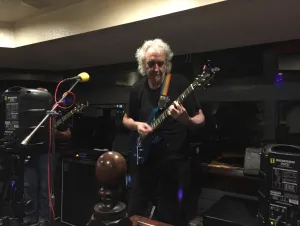
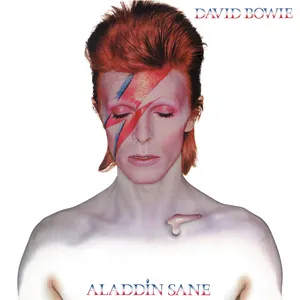
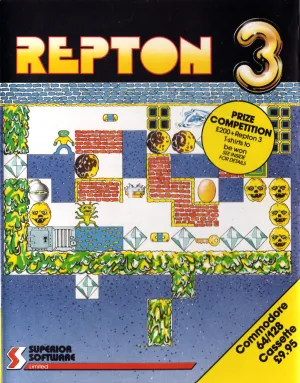
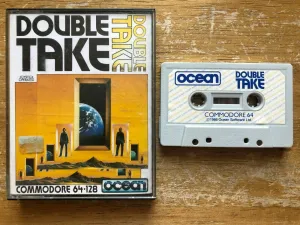
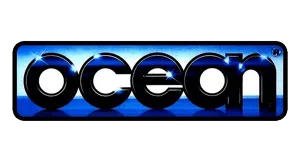
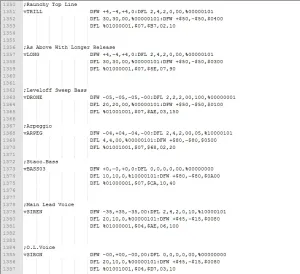
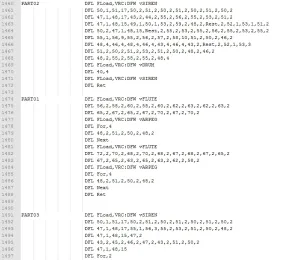
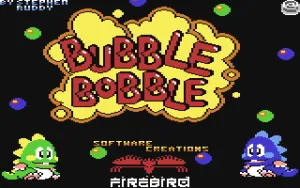
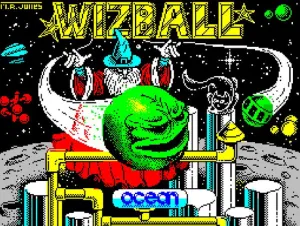










Comments